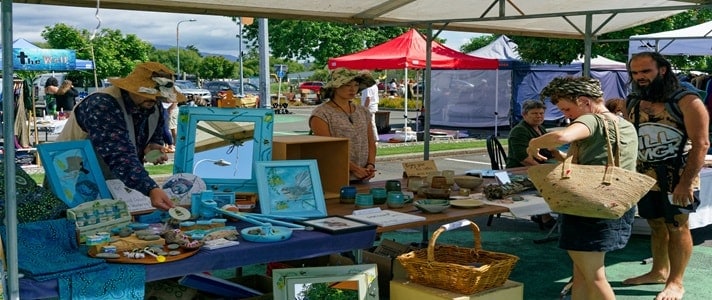Creative Pursuits for Income in Retirement: A Comprehensive Guide

Retirement is the perfect time to explore and monetize your creative interests. This guide shows how retirees can turn their creative skills into income streams, covering various fields and the pros and cons of creative entrepreneurship in retirement. Whether you’re into writing, painting, or crafting, there are numerous creative pursuits for income in retirement to consider. Additionally, financial planning is crucial for managing these income streams effectively and making informed decisions about your post-career lifestyle.
Introduction
The retirement landscape is changing, more people want to stay busy, engaged and financially secure in their golden years. Creative pursuits offer a great way to combine passion with income generation in retirement. This is driven by increased life expectancy, desire for personal growth and in some cases need for extra cash.
This is also driven by changing attitudes towards ageing and work. Many retirees today see their post career years as a “second act” rather than a complete retirement from work. This mindset plus longer, healthier lives means it’s the perfect time to explore exciting opportunities for exploration and fulfillment through creative pursuits as both a hobby and income stream.
Creative Pursuits as Income Sources

The Creative Economy in Retirement
Turning creative hobbies into income streams has become super popular among retirees. This is part of the broader “creative economy” where individual creativity, skill and talent equals economic value. For retirees this is a chance to turn a lifetime of experience into a fun venture. Additionally, retirees can fine tune their creative skills to achieve mastery and economic value.
This is further boosted by the recognition of the value of experience and wisdom in creative fields. Many consumers love the depth and authenticity that comes with creations made by people with a lifetime of experience to draw from, so retirees have a unique advantage in the market.
Why Creative Work for Retirees
Flexibility: Creative work can be done on your own schedule. This includes location too, so you can work from home, a studio or even while traveling, whatever your lifestyle or physical needs.
Sense of Purpose: Creative work gives you continued relevance and fulfillment.
Ongoing Learning: Creative pursuits offer ongoing personal development. And the process of learning and mastering new creative skills is super rewarding, giving you a sense of achievement and growth that many miss in traditional retirement activities.
Expression of Identity: Retirement is a time to reclaim or reinvent your identity through creative expression.
Social Connection: Creative work leads to connections with like-minded people.
Family Bonds: Engaging in creative work can be a wonderful way to spend quality time with family and strengthen family bonds, enhancing the overall quality of retirement life.
Handmade and Personalized Items Market Growing
The market for unique, handcrafted and personalized items is booming and it’s all because of:
Authenticity: Consumers want authentic handmade items.
Sustainability: Handmade is seen as more eco friendly.
Supporting Local and Small Business: There’s a movement to support local artisans.
Online Marketplaces: Etsy has made it easy for artisans to reach a global audience.
Customization Trend: The demand for personalized products aligns with creative offerings.
Gifting Culture: Handmade and personalized items are becoming more popular as gifts. Retirees can spend their time creating unique items for special occasions, an alternative to mass produced gifts.
Creative Opportunities

Retiree Craft Businesses with Handmade Goods
Knitting and Crochet
Woodworking
Jewelry Making
Quilting and Sewing
Pottery and Ceramics
Soap and Candle Making
Amateur Radio
Upcycling and sustainable crafting have also opened up new opportunities for creative retirees. Turning old into new and beautiful and functional is what environmentally conscious consumers are looking for and can be a fun way to combine creativity and sustainability.
Writing and Publishing
Blogging
Self-Publishing
Freelance Writing
Ghostwriting
Technical Writing
Book Club
Another option is creating and selling online courses or e-books based on a retiree’s expertise or life experiences. This allows retirees to share their knowledge and potentially create a passive income stream.
Post-Career Art Ventures and Photography
Painting and Drawing
Photography Services
Digital Art
Mixed Media Art
Printmaking
Composing Music
Virtual and augmented reality art is a new frontier for tech-savvy retirees. As these technologies become more popular, there’s a growing interest in art in virtual spaces.
Other Creative Fields
Music Composition and Performance
Voice Acting
Teaching and Workshops
Garden Design
Culinary Arts
College Courses
Podcasting is another area that’s growing. Retirees with a story to tell, expertise or perspective can create audio content around what they love and potentially monetize through sponsorships or listener support.
Benefits of Creative Work in Retirement

Working hard on a passion project during retirement has so much more to offer than the slim possibility of financial success:
Joy in Creativity:
Creative work brings a sense of accomplishment and an emotional release. Creating something from nothing — be it an oil painting, a novel or the sweater you knitted over two weekends — is arguably one of life’s most rewarding experiences. Retirement: Enables retirees to provide an avenue for their insights, feelings and perspectives. If anything, this way of creative expression is even more important in retirement at a time when some may feel lost without their career; and with nowhere to go or deadlines.
Brain Exercises:
Having fun with intricate artistic ventures keeps the mind sharp. Taking on new tasks, creatively solving problems, and engaging the mind in artistic endeavors can improve brain health. But research has shown that engaging in creative behaviors can be a boon to your memory, boost problem-solving abilities and potentially even slow down the process of cognitive decline as you age. The continuous learning and change of pace associated with such activities seem to keep the brain nimble, which could play an important role in overall cognitive health.
Social ties:
Participating in communities with other creatives accepts allows you to meet and network. One of the greatest concerns for retirees is social isolation, but engaging in creative pursuits can provide a solution – local art classes or writing groups, online forums and more. This connection can then be used to branch into new friendships, partnerships and a feeling of belonging. Group critiques and exhibitions of work can offer a way to maintain an active social life in retirement.
Ability to Earn Extra Money:
By using something like the best camera for beginners, you have an option to engage in creative work that compensates your time and can springboard more extravagant trips. For most retirees, the desire to express themselves through their art is all they need but of course a little extra coin every now and then always helps. The additional income from a creative pursuit can be a boon if you want to step up your retirement lifestyle, splurge on vacations, hobbies or use it as a financial safety net. It may very well evolve into quite a rewarding second vocation for some.
Physical Health:
Many creative activities keep fine motor skills sharp and reduce stress. Painting, knitting or woodworking require manual dexterity and hand-eye coordination to keep these skills in shape. The focus and mindfulness that goes into creative work can be meditative and reduce stress and relaxation. Some creative activities like gardening or big art projects can also be light physical activity and contribute to overall health and wellbeing.
Legacy:
Creative work lets you leave a legacy. Whether it’s written work, art or crafted items, creative pursuits give you a way to leave something behind for future generations or for your community to remember you by. The feeling of leaving a mark or contributing something meaningful can be very satisfying and give you a sense of continuity and purpose.
Adaptability and Resilience:
Creative work requires you to consistently think on your feet–valuable regardless of one’s age, but especially in retirement. When retirees learn new techniques, create art unique to them, and may even cope with other elements of the business of selling their creative wares they will have a built-in process for remaining flexible toward novel situations. Also, this adaptability can extend into new branches of existence making room for overcoming the different changes and challenges that are faced during retirement.
Cultural and Community:
By creating and sharing their work, retirees can contribute to their local culture and community. Whether it’s public art installations, community theatre, or local craft markets, creative pursuits get retirees involved and enrich their community’s cultural life.
Time Management:
Creative work helps retirees structure their time, gives them a sense of purpose and routine they miss after leaving the workforce.
Cross-Generational:
Creative pursuits bridge the generational gap, gets retirees connected with younger people who share similar interests, and learn from each other.
Engaging with Students:
Retirees can engage with students through tutoring or creating online courses. This not only allows them to share their knowledge and experience but also helps in building meaningful connections with a younger audience. Online education platforms can facilitate this relationship by matching tutors to students in need of assistance, promoting opportunities for retirees to reach a wider student audience.
Challenges and Considerations

Creativity vs Business
Also, consider the impact on your creative passion when you turn it into a business. Having a clear idea of how to balance creativity and business is crucial. Some retirees find that the pressure to produce for profit can kill the joy of creating. Finding a balance that keeps the joy of creating while meeting business needs is key.
Marketing and Selling Creative Works
Social media can be tricky but fun for retirees. Having diverse marketing ideas is crucial for effectively selling your creative works. These platforms are great tools for showing off your work and connecting with customers but require ongoing learning and adaptation to use well.
Time and Energy
Setting boundaries for work-life balance.
Adapting practices for physical limitations.
Balancing creative work with other retirement activities.
Also consider the physical demands of your chosen creative pursuit. Some activities may require adaptations or ergonomic considerations to keep them enjoyable and sustainable long term. Spend time thinking about how to balance creative work with other retirement activities to ensure a fulfilling and engaged retirement.
Creative Blocks and Burnout
Long term motivation
Perfectionism vs productivity
Market changes
Having a network of fellow creative retirees can be a game changer. Sharing with others the joys and challenges of creative pursuits work in retirement can not only help with extra income, but you stay motivated and overcome obstacles. It doesn’t matter if you face creative blocks; with support from fellow creatives, you can overcome them.
Getting Started with Late Life Creative Careers

Discover Your Strengths and Interests: What are you naturally good at?
Investigate Into the Market: Find out what is in demand and who your consumers are.
Improve your craft: Keep learning, and practice what you learn.
Develop a Business Plan: Describe what you want to achieve, your market niche, and the numbers.
First Things First – Establish Your Workspace: Designate an area for your creative work
Select Your Platforms: Online Marketplaces, Local Events, or even your website.
Connect with Creatives & Prospects (networking): Connect to other creatives and potential clients.
Test the waters: You can begin either by debris lines or tiny tasks prior to spending your time and money.
Seek a Mentor: Find out a well-experienced professional in your domain who can guide you and share their experience.
Learn Technology: Learn about the tech that facilitates your work, market or sell and get assistance/training if required.
Conclusion
Making income from creative pursuits in retirement is a chance to merge passion with purpose. Whether you like crafting, writing, visual arts or any other creative field there are many ways to go and opportunities to grab.
Remember success in creative pursuits can be defined in many ways. For some it will mean a thriving business, for others it will be the joy of sharing their work with a wider audience. The key is to keep the passion that drew you to your creative pursuit in the first place.
Retirement is not just about resting, it’s about re-inventing yourself and exploring new passions. By being entrepreneurial with your creativity you can make your golden years truly golden with purpose, fulfillment and maybe a bit of extra cash.
Frequently Asked Questions (FAQs)
1. Is it too late to start a creative business in retirement?
Nope. Retirement gives you the time and perspective to succeed in creative endeavors. Many successful entrepreneurs started their businesses later in life and brought valuable life experience to the table.
2. How much money can I really make from my creative pursuits?
Income varies greatly depending on your field, time commitment, marketing and market demand. Some retirees earn a little extra income, others build businesses that rival their pre-retirement income. Be realistic and remember success takes time.
3. Will earning income from my creative pursuits affect my retirement benefits?
Maybe, depending on your situation and benefit types. For example, income could reduce Social Security benefits if you’re receiving them before full retirement age. Consult a financial advisor or the relevant government agency to find out how it will impact your benefits.
4. How do I price my work?
Consider your material costs, time invested at a fair hourly rate and add a profit margin. Research what others are charging for similar items. Be prepared to adjust your pricing as you gain experience and understand your worth.
5. How do I balance my creative business with enjoying my retirement?
Set boundaries and priorities for your work. Decide on specific work hours or days and stick to it. Remember being your own boss— if your business gets stressful or time consuming, it’s okay to scale back or adjust to enjoy your retirement lifestyle.
Disclosure: Some of the links in this article may be affiliate links, which can provide compensation to us at no cost to you if you decide to purchase. This site is not intended to provide financial advice. You can read our affiliate disclosure in our privacy policy.
